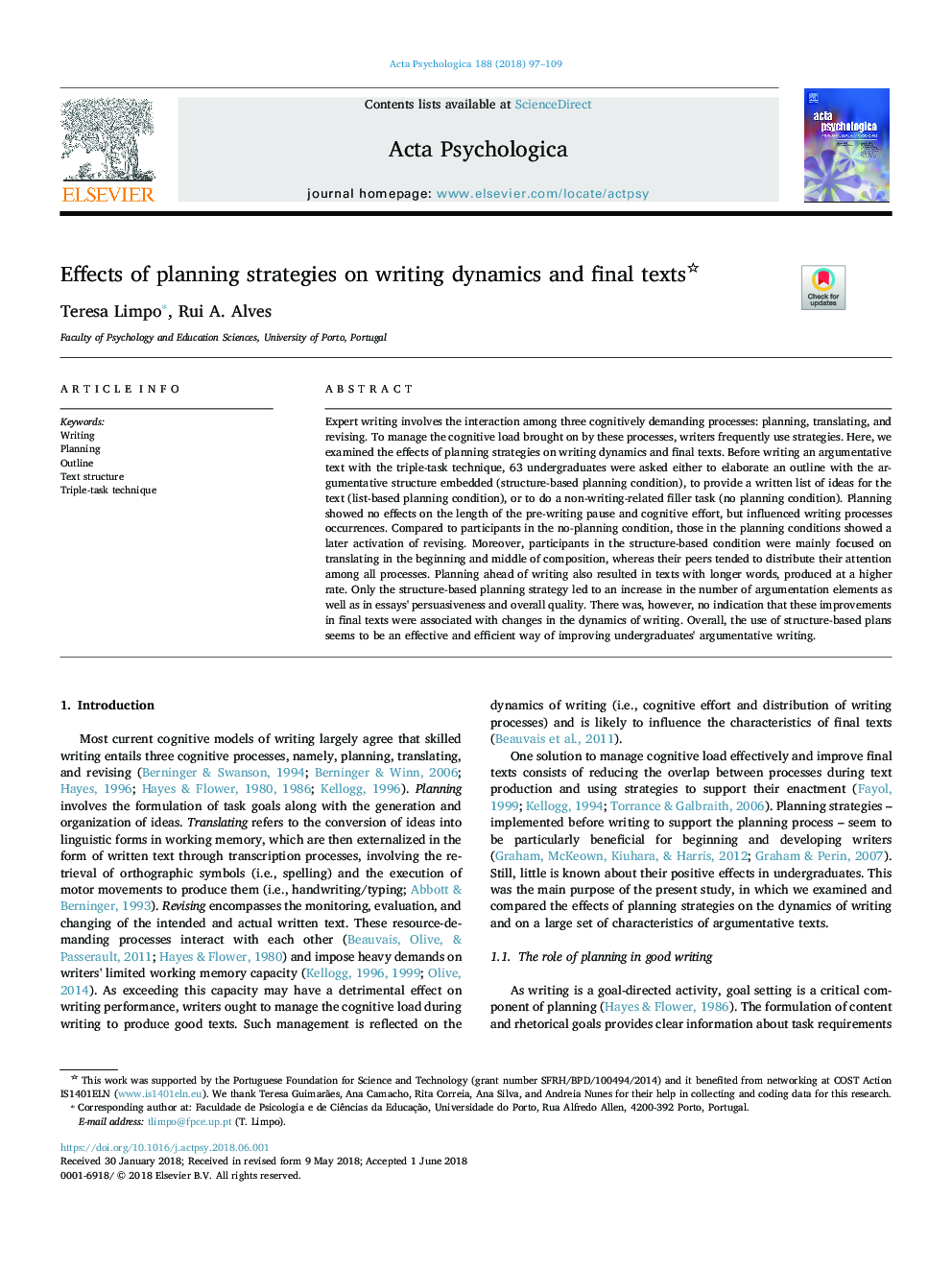| Article ID | Journal | Published Year | Pages | File Type |
|---|---|---|---|---|
| 7276591 | Acta Psychologica | 2018 | 13 Pages |
Abstract
Expert writing involves the interaction among three cognitively demanding processes: planning, translating, and revising. To manage the cognitive load brought on by these processes, writers frequently use strategies. Here, we examined the effects of planning strategies on writing dynamics and final texts. Before writing an argumentative text with the triple-task technique, 63 undergraduates were asked either to elaborate an outline with the argumentative structure embedded (structure-based planning condition), to provide a written list of ideas for the text (list-based planning condition), or to do a non-writing-related filler task (no planning condition). Planning showed no effects on the length of the pre-writing pause and cognitive effort, but influenced writing processes occurrences. Compared to participants in the no-planning condition, those in the planning conditions showed a later activation of revising. Moreover, participants in the structure-based condition were mainly focused on translating in the beginning and middle of composition, whereas their peers tended to distribute their attention among all processes. Planning ahead of writing also resulted in texts with longer words, produced at a higher rate. Only the structure-based planning strategy led to an increase in the number of argumentation elements as well as in essays' persuasiveness and overall quality. There was, however, no indication that these improvements in final texts were associated with changes in the dynamics of writing. Overall, the use of structure-based plans seems to be an effective and efficient way of improving undergraduates' argumentative writing.
Keywords
Related Topics
Life Sciences
Neuroscience
Cognitive Neuroscience
Authors
Teresa Limpo, Rui A. Alves,
